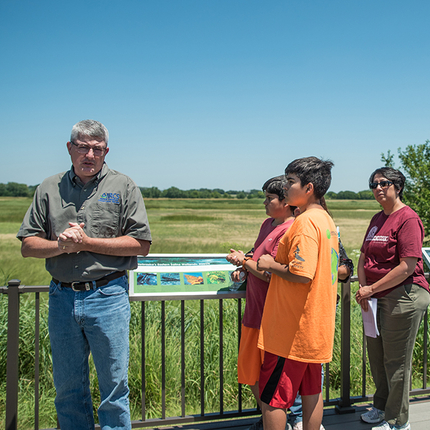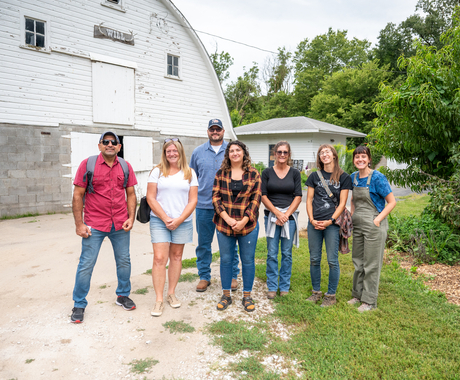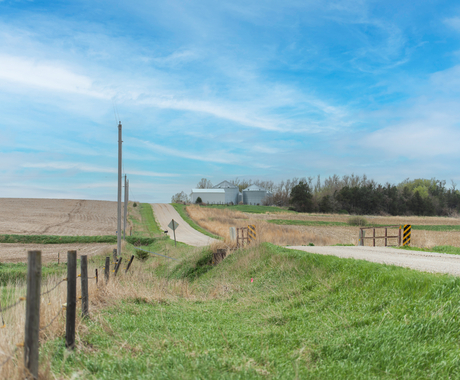Teresa Hoffman, senior communications associate, [email protected], 402.687.2100, ext. 1012
LYONS, NEBRASKA - Conservation easements can do many things, and when an easement is designed to permanently conserve a working farm or ranch, special care should be taken to assure the agreement is compatible with agriculture.
A good agricultural conservation easement should not interfere with day-to-day activities or the economic viability of an agricultural operation, and it should prevent development that permanently removes land from agricultural production.
On Tuesday, Nov. 23, the Center for Rural Affairs will host the online discussion “Getting to Know Agriculture Conservation Easements,” beginning at 5 p.m CST.
Dave Sands, executive director of the Nebraska Land Trust, will be joined by Dean Fedde, a Sarpy County, Nebraska, farmer who placed an agricultural conservation easement on his farm. The presentation will include general information about conservation easements and specific elements that should be included when the agreements are used to conserve agricultural lands.
“Too often we see our state's beginning farmers struggling to hang onto farmland, in some cases land that has been in their family for generations,” said Justin Carter, project associate for the Center, who will moderate the discussion. “Agriculture conservation easements can be a vital financial tool to securing that land and ensuring that it remains in agricultural production while protecting the native plant and animal species.”
Sands and Fedde also will discuss the Natural Resources Conservation Service Agricultural Land Easement program, which can provide funds for the purchase of conservation easements.
“Payments for conservation easements make them a business decision in addition to leaving a legacy of conserved land,” Sands said. “In some cases, this can be a powerful financial tool for beginning farmers and ranchers who want to get started in agriculture, reduce debt or make other needed investments that can strengthen their existing operation.”
For more information and to register for this online event, visit cfra.org/events.
###





